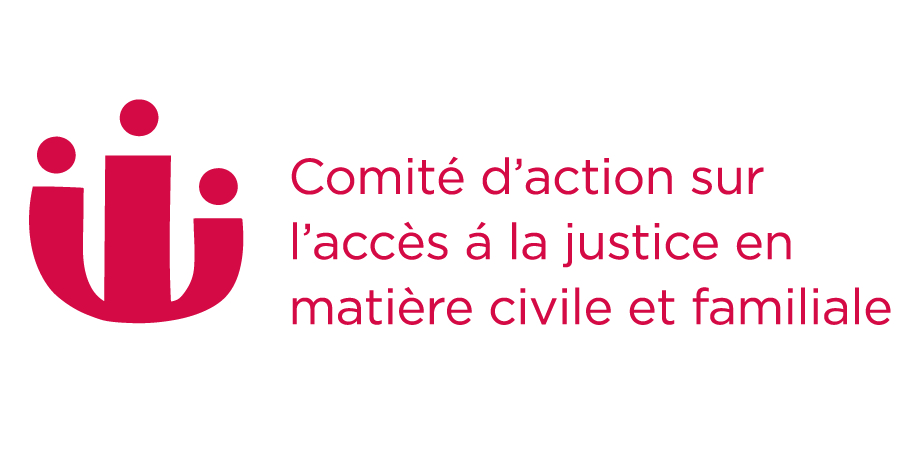Inventory of Reforms
Alberta Family Court Counsellors
Year:
1950
Description:
Alberta Justice program providing Provincial Court family law litigants with information, court assistance, and referrals to specialized services.
Status:
Permanent implementation
Jurisdiction:
Alberta
Court:
Provincial Court
Body Responsible:
Alberta Justice – Family Justice Services
Timeline:
1950: Established
1978: Mediation Program added
1990s: Educational programs for parents added
2001: Transferred from Child Services to Alberta Justice
2005: Intake sessions made mandatory for self-represented litigants proceeding in Provincial Court
Publications:
Family Court Counsellors / Intake Assistance
Leslie D. MacRae, Shane Simpson, Joanne J. Paetsch, Lorne D. Bertrand, Sheryl Pearson & Joseph P. Hornick, An evaluation of Alberta’s Family Law Act (Canadian Research Institute for Law and the Family, 2009). [Report]
Family Justice Services Brochure
Development:
The Family Court Intake Service was made available initially by the Child Services department in response to the negative impact of family break-ups on children. The program has evolved over the years to provide more legal help and proper referrals to more specialized services.
In July 2005, the « Intake and Caseflow Management Regulation » made intake sessions mandatory for self-represented litigants proceeding in Provincial Court.
Description of Reforms:
The Court Counsellor Service provides:
- Information on options and services for resolving family issues
- Referrals to services and programs including mediation
- Information on the effects of separation and divorce on children
- Help to negotiate agreements
- Assistance with court applications such as: Parenting orders; Contact orders; Guardianship; Child contact, including grandparent contact; Enforcement of child contact or access orders
- Assistance with arranging court dates
- Assistance in presenting the case in Provincial Court.
Services are not yet available for Divorce Act matters and do not include legal advice.
Criteria and Methods of Evaluation:
The Family Justice Services Family Court Counsellor program was reviewed by Canadian Research Institute for Law and the Family as part of its evaluation of the Alberta Family Law Act (FLA), with results released in May 2009.
Results:
Survey results and data from January 2004 to December 2007 for the program were analyzed and evaluated in the final report.
The Family Justice Services Family Court Counsellor program has also witnessed a noticeable increase in caseload. Family Court Counsellors [FCCs] perform a number of functions, including orientation and intake when a self-represented litigant is proceeding in Provincial Court, mediation, and in-court support. Family Court Counsellor intake and brief mediation are also potential points at which issues may be resolved and consent may be reached… A notable rise in intakes across the province occurred with the enactment of the FLA, followed by a steady increase to December 2007 – representing a 62% increase from January 2004. The Region, in particular, witnessed a substantial rise in intakes during this period, at 124%. This is likely due to the increasing number of family court locations across the Region where Family Court Counsellors have been introduced since the enactment of the FLA. Edmonton witnessed an 80% increase in intakes during this time, whereas Calgary, though peaking at an 85% increase in January to March 2007, had decreased below pre-FLA levels by December 2007. Despite this, overall provincial trends speak to the importance of Family Court Counsellors as both a dispute resolution mechanism and a support for self-represented litigants (Report at 38).
Survey respondents were very positive about the services provided by Family Court Counsellors… [A]lmost three-quarters (72.9%) thought the services improved the efficiency of the family law system, only 7.6% disagreed, and one-fifth (19.4%) were either unfamiliar with the service or had no opinion. Forty respondents made 44 comments, the most common (n=19) being that the service is excellent, and Family Court Counsellors provide access to accurate information and support (Report at 66)
Typically, the initial stage of entering into the court process involves completing an intake with a Family Justice Services (FJS) Family Court Counsellor… [A] majority of participants (87.9%) completed an intake with FJS. Approximately three-quarters (75.9%) of those participants indicated that FJS improved their understanding of the court procedures and the options available to them. When asked how FJS improved their understanding, participants commented that FJS provided useful information, provided mediation and support, and assistance with applications and documentation (Report at 96).
Family Justice Services Family Court Counsellors are integrated into a variety of stages within court processes and procedures. For SRLs who went to Provincial Court, a majority (82.6%) met with a FCC before their court appearance. During this stage, only 36.8% had the other party present when meeting with a FCC and 5.3% had the other party sometimes present for this discussion with the FCC. The majority of participants (68.4%) who met with a FCC before appearing in court found the discussion with the FCC helped them to better identify issues concerning their application(s). Most described positive experiences in how they were assisted and provided with information on court procedures…
During the Caseflow Conference (CFC), just over half (55.6%) of the participants recognized that a FCC was present in their CFC. A majority of these participants (80%) explained that the presence of the FCC was not helpful in the CFC as the FCC did not seem to be actively engaged in the discussions…
When appearing in Docket Court, 60% of the SRLs had the support of a FCC. All of these participants stated that the presence of the FCC was helpful because of the support that the FCC provided, the information given regarding court procedures, and in presenting the application(s) in front of the judge on their behalf (Report at 105, 107).
Revision History:
This summary was last reviewed in Aug 09, 2012



